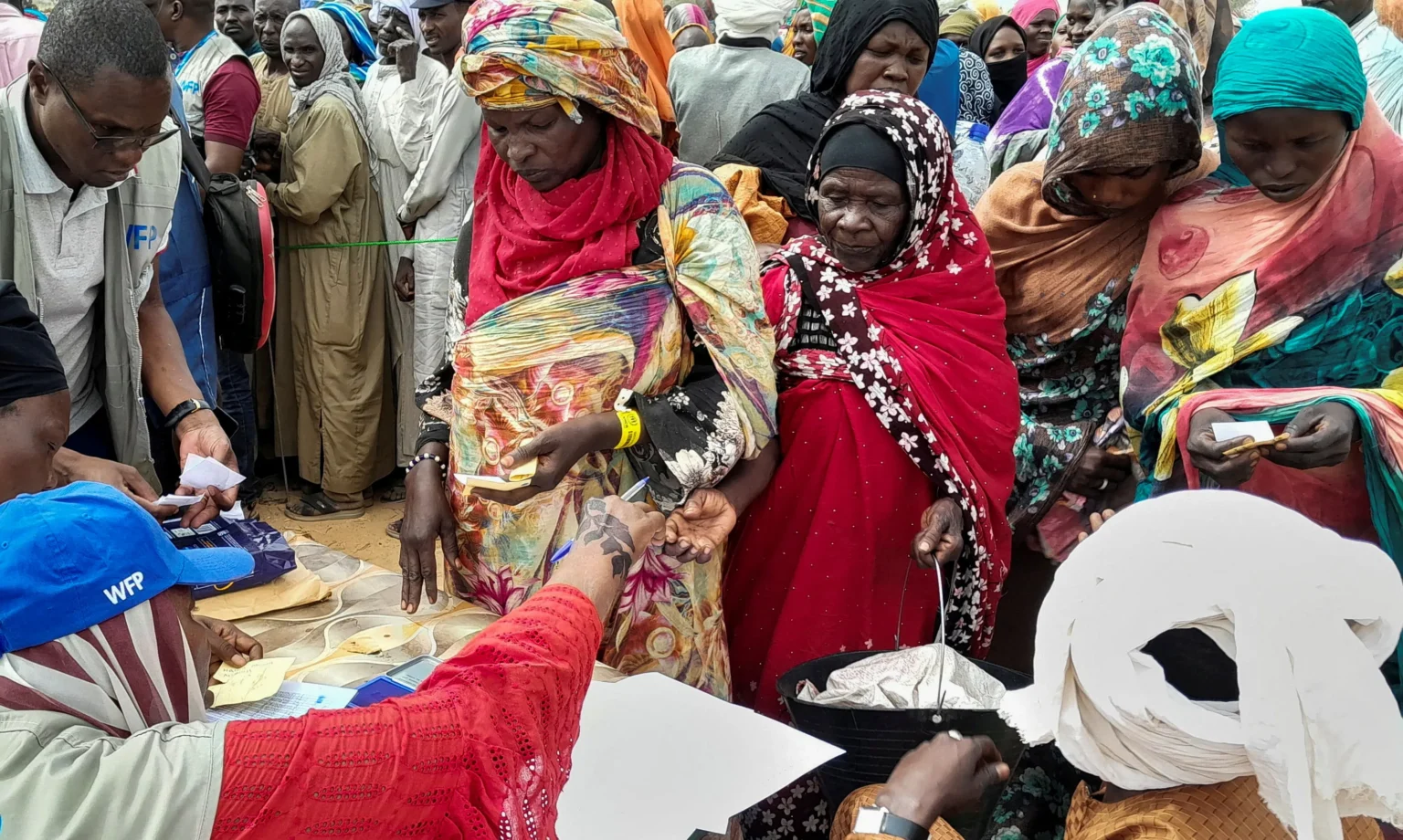- Sudan’s humanitarian crisis is the worst in recent history, according to the United Nations.
- One-third of Sudan’s population, that is, 18 million people, are facing acute food insecurity, while 730,000 Sudanese children are believed to be suffering from severe malnutrition.
- World Food Programme(WFP) has delivered food to over 5.2 million people within Sudan since conflicts started in April.
Sudan’s humanitarian crisis
The United Nations Humanitarian Office has warned that Sudan is on the verge of facing the worst humanitarian crisis in recent history. Key drivers of this situation include intensified conflict and growing inter-communal violence, an economic crisis, soaring prices of food, fuel and essential goods, and below-average agricultural production.
“By all measures – the sheer scale of humanitarian needs, the numbers of people displaced and facing hunger – Sudan is one of the worst humanitarian disasters in recent memory,” Edem Wosornu, director of operations at the UN Office for the Coordination for Humanitarian Affairs (OCHA), said.
“A humanitarian travesty is playing out in Sudan under a veil of international inattention and inaction,” Wosornu told the UN Security Council on behalf of OCHA head Martin Griffiths. “Simply put, we are failing the people of Sudan,” she added, describing the population’s “desperation.”
Fighting between the army, headed by General Abdel Fattah al-Burhan, and the paramilitary Rapid Support Forces (RSF), led by Mohamed Hamdan Dagalo, since last April has killed tens of thousands of people, as the threat of famine looms amid international inaction.
Already one-third of Sudan’s population, that is 18 million people, are facing acute food insecurity, while 730,000 Sudanese children are believed to be suffering from severe malnutrition. This includes upwards of 240,000 children in Darfur, where fighting has been intense. Catastrophic hunger levels could be reached in most parts of Darfur before May 2024, said Edem Wosornu, the director of humanitarian operations.
In a recent assessment, a report says that one child is dying every two hours, and an estimated 222,000 will die in the next few weeks due to malnutrition in Zamzam camp in north Darfur.
“Our humanitarian partners estimate that in the coming weeks and months, somewhere in the region of around 222,000 children could die from malnutrition,” said Edem Wosornu, director of operations for the UN Office for the Coordination of Humanitarian Affairs (OCHA).
The African nation plunged into chaos in April 2023 after the forces led by Gen. Abdel Fattah Burhan and the paramilitary Rapid Support Forces( RSF) clashed in a street battle in Khartoum, which later quickly spread throughout the country.
According to the UN, the conflict has led to more than eight million people being displaced, killing at least 12,000 people.
War and crime in Sudan
About two decades ago, genocide and war crimes against populations that identify as Central or East African became popular by the janjaweed Arab militants.
According to the international criminal court prosecutor Karim Khan, there are grounds to believe that both sides of the current conflict are committing crimes against humanity or genocide in Darfur.
There have been reports of violence and rape against women. Additionally, both warring sides have been reported to be recruiting children to the military.
In a statement, United Nations Secretary-General Antonio Guterres urged rival leaders to end the conflicts. He stressed that continued fights would bring no solution but more deaths.
Read Also: Sudan’s humanitarian crisis poised to worsen as economy contracts by 18 per cent
Displacement and emigration
Sudan is also facing the worst displacement crisis globally. Around 7.7 million people have been forced from their homes since the conflict erupted in April 2023, according to the International Organization for Migration. Conflict hotspots such as Khartoum, Darfurs and Kordofan remain primarily inaccessible. WFP has assisted over 1.2 million people who fled to neighbouring countries.
Among the displaced are refugees who fled to countries like South Sudan, Ethiopia, and Chad, where tents have been set up to help those fleeing for help. It has been reported that people living in the camps need food and medical attention.
Additionally, farmers fled from their homes, leaving their land uncultivated, which signifies low economic growth from the agricultural sector and consequently renders the population hungry.
Humanitarian Aid in Sudan
World Food Programme(WFP) has delivered food to over 5.2 million people within Sudan since conflicts started in April. In addition to the 18 million people facing acute food insecurity in Sudan, 7 million people in neighbouring South Sudan and nearly 3 million in Chad, which borders Darfur, also face dire hunger.
UN food agency is working around the clock to ensure help reaches people all over Sudan, but lack of access and resources severely hampers its operations.
Currently, close to five million people are in emergency levels of food insecurity, with over three-quarters confined to areas where humanitarian access has been intermittent and, in some cases, impossible due to ongoing fighting. The SAF and RSF have been hampering aid delivery to people in need.
According to the US State Department, the United States has pledged about $47 million in new humanitarian assistance for the emergency response in Sudan and neighbouring countries, including Chad and South Sudan.
Additionally, the Department said the announcement brought total US humanitarian assistance for people in Sudan and neighbouring countries to more than $968 million since the fiscal year 2023.
In the face of the looming famine, Sudan will need as much humanitarian help as possible from well-wishers and humanitarian Aid groups.
Moreover, coordinated efforts and joined-up diplomacy are urgent and critical to prevent Sudan from becoming the world’s largest hunger crisis. Additionally, all parties must provide unrestricted access across borders and conflict lines to enable humanitarian actions.
